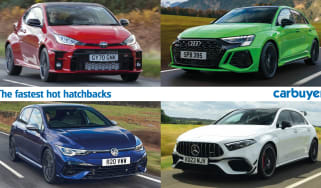Skoda Fabia review – a great-value, practical supermini | Carbuyer (original) (raw)
"A size increase serves the Skoda Fabia well, making it an ideal supermini for families"

12 Sep 2024
Carbuyer Rating
4.4 out of 5
Verdict – is the Skoda Fabia a good car?
The Skoda Fabia is one of our favourite superminis because it performs well and offers very strong value for money. Skoda has a tradition of offering class-busting models and the Fabia is no exception, with five doors, respectable rear legroom and boot space that’s on par with family hatchbacks from the class above. While it’s a shame there aren’t any electrified options, the Fabia’s simple, but tried-and-tested petrol engines also offer decent driving manners with low running costs, and it’s a surprisingly comfortable supermini for longer trips.
Skoda Fabia models, specs and alternatives
Since it launched around two decades ago, the Skoda Fabia has forged a name for itself in the supermini market and become a huge success. It’s unsurprising, because parent company Volkswagen uses many of the parts from its Polo small car in the Fabia, and yet the whole car is offered for a more affordable price.
Like the Volkswagen Polo, the Skoda Fabia has grown in size for this most recent iteration, allowing for a bigger boot and more interior space, and it offers improved infotainment and safety tech compared to before.
 The 10 best hatchbacks to buy in 2025
The 10 best hatchbacks to buy in 2025
Skoda has become synonymous with practicality, and the new Fabia is a key example of why. The supermini now boasts a class-leading 380-litre boot, which is bigger than that of its SEAT and Volkswagen siblings, coming close to matching cars from the class above. Not only that, but there's also more space for passengers and child seats, giving the Fabia more versatility than ever.
More reviews
As features continue to trickle down from bigger models, the Fabia feels increasingly upmarket. An update in 2024 even upgraded all trims to include more equipment than before. Four trim levels are currently available, called SE Edition, Design Edition, SE L Edition, and a sporty Monte Carlo Edition model. Every version of the Fabia now gets a digital gauge cluster, with SE Edition fitted with an eight-inch unit that replaces the old analogue gauges. The infotainment system also gets a size increase across the board. The higher-spec models get ‘big car’ features such as a heated steering wheel and a panoramic sunroof.
One area where the Fabia perhaps isn't quite as advanced as rivals is under the bonnet. Most buyers will get a 1.0-litre three-cylinder petrol engine that can manage around 50mpg but there's no hybrid or even mild-hybrid assistance. Buyers can spec this engine in a variety of power outputs from the basic MPI versions with 79bhp, or a more powerful TSI variant with either 94bhp or 114bhp. Entry-level engines get a five-speed manual gearbox, with the most potent getting a choice of a six-speed manual or a DSG automatic. A more powerful 1.5-litre four-cylinder petrol engine is also offered on all but the entry-level SE Comfort models; this produces 148bhp and is the fastest version of the Fabia on sale, and it solely offered with a DSG automatic transmission.
None of that means the Fabia will be expensive to run, but those seeking innovation or a cheap company car might prefer one of the hybrid powertrains offered in the Toyota Yaris, Renault Clio E-Tech or Honda Jazz, which can run on electric power for at least some of the time.
On a more positive note, the new Fabia is better to drive than the old one. Skoda engineers have chosen to make the new car’s suspension softer than the Fiesta or Ibiza; it's not as sporty as a result but it rides very well and feels relaxed over long distances.
The Fabia was awarded five stars by Euro NCAP, a score that will reassure owners. The Fabia uses a number of tried and tested engines shared with other models, so it should generally prove reliable.
Unfortunately, Skoda ownership has been on a downward trajectory in recent years – in 2024 it placed 23rd out of 32 manufacturers in terms of customer satisfaction as rated by owners, which is four places down on the year before. It was actually beaten by its SEAT stablemate for value for money, although owners rated Skoda well for practicality.
The Skoda Fabia offers cheap petrol motoring but there's no hybrid model
Like a number of its supermini rivals, the Skoda Fabia is only offered with petrol engines, as sales of small diesel cars continues to shrink. It also appears unlikely the Fabia will be released as a hybrid - if you're looking for one of those, you'll need to stick with the Toyota Yaris, Renault Clio E-Tech or Honda Jazz.
Instead the Fabia offers simple, affordable motoring with small three-cylinder petrol engines that are economical. Most are just 1.0-litres in size and there is also a 1.5-litre four-cylinder if you need extra performance. The latter will also be affordable to run as the smaller engines, thanks to clever technology that can shut down two cylinders when the engine’s full power isn’t required.
Skoda Fabia MPG & CO2
The slight increase in size of the latest Fabia has not affected its efficiency. Even the most powerful 1.5-litre TSI petrol with 148bhp can officially return around 50mpg in sporty Monte Carlo trim, fitted with an automatic DSG gearbox. Meanwhile, CO2 emissions start from 118g/km, a figure that’s fine for private buyers but won't suit company-car drivers due to a high (BiK) Benefit-in-Kind banding.
Most drivers will instead pick one of the frugal 1.0-litre TSI petrol engines. These are available in two different power outputs – 94bhp and 114bhp – and can both manage around 55mpg, with CO2 emissions as low as 115g/km. While 1.0-litre cars sit in a slightly lower BiK band than the flagship 1.5-litre model, both will still attract a higher tax bill than hybrids such as the Toyota Yaris and Honda Jazz. While these rivals will be more efficient around town, there’s little to differentiate between them if you do lots of motorway miles, as they will all achieve economy figures in the low-to-mid 50s at higher speeds.
Acting as the entry-point to the range, the non-turbocharged 1.0-litre MPI engine is offered in the Fabia with a 79bhp output. Despite being less powerful, it’s unlikely to be any cheaper to run than the turbocharged TSI engines, managing up to 55mpg and emissions starting from 116g/km. The main saving here is the cost of buying the car itself, but considering a TSI engine is only around £500 more, we'd recommend upgrading unless you need a particularly low insurance group.
All versions of the Skoda Fabia are liable for VED (road tax) at the standard rate from the second year of ownership onwards.
Insurance groups
Strangely, the closely-related Volkswagen Polo with the same entry-level 1.0-litre MPI engine as the Skoda Fabia starts from insurance group one, despite having a slightly more upmarket image in comparison – the Fabia starts from group four, so it’s still one of the cheapest cars to insure in the UK, and is cheaper to buy than the Polo in the first instance. The 1.0-litre TSI model increases to insurance group 10, while the 1.5-litre TSI sits in group 19 out of 50, which will make it pricey to insure for young drivers.
Warranty
While Skoda does most things right, its three-year/60,000-mile warranty is starting to look rather poor next to some offerings from rivals, although it does still match the likes of Ford and Volkswagen. Hyundai offers a five-year/unlimited-mileage policy, while Kia offers seven years of cover. Toyota has a new 'Relax' warranty that can last up to 10 years. Skoda Fabia owners can extend their warranty coverage for up to two extra years or 100,000 miles for prices ranging from between £250 to just over £500.
Servicing
Skoda offers competitive servicing prices and it can be a good idea to take out a fixed-price servicing plan when (or shortly after) you buy the car. These plans cover two or three years, and cost around £15 a month, and cover the cost of scheduled maintenance, helping to spread the cost and avoid large bills.
The small Skoda offers a reassuring big-car feel
While the outgoing Fabia soldiered on with parts from much older cars, the latest model now gets newer technology and a significant size increase. It's especially noticeable how much wider it is and this improves stability, which has always been a Fabia trademark. Now it feels even more solid and secure, and does a good job of convincing you it's a larger car from the driver's seat.
We wouldn't go so far as to call it sporty because the Fabia still feels more focused on comfort than the Hyundai i20. Instead, its steering feels more natural and it has a level of polish that moves it much closer to the Volkswagen Polo and Renault Clio.
Skoda Fabia petrol engines
Skoda only offers the Fabia with front-wheel-drive and petrol power, however, there are a few different engines to choose from. The range-topping 1.5-litre powertrain was previously only available on Monte Carlo, though as of 2024 it’s available on Colour Edition and above and produces a potent 148bhp. While this is no match for the likes of the Volkswagen Polo GTI, the Fabia Monte Carlo feels relatively brisk. Unlike the rest of the Fabia range, this model is only available with a seven-speed DSG gearbox; getting from 0-62mph takes around eight seconds.
The mid-range turbocharged 1.0-litre TSI is familiar to anyone who has driven any small Volkswagen Group cars over the last few years. This is available in 94bhp or – as of a 2024 update – 114bhp outputs, with the latter taking 9.3 seconds to get from 0-62mph. Both engines can be specified with either a six-speed manual or the aforementioned DSG automatic; the DSG can be slow to respond at times, and acceleration is often accompanied by an obtrusive grunt from the engine.
During normal driving, the engine is far quieter at low revs, with a smooth and subdued character. It’s impressive at motorway speeds, where the engine noise is barely noticeable over road noise, which can be quite loud at times. For most drivers, we expect the slick manual gearbox will provide a more satisfying driving experience over the DSG automatic.
It’s also very comfortable for a supermini, with a softer ride that makes it relaxing to drive. The handling is fairly neutral too, with a numb steering feel meaning the Fabia lacks the fun factor or driver involvement possessed by rivals such as the Renault Clio. However, regardless of the lack of fun, the Fabia offers precise and secure handling for a supermini, and is one of the most refined you can buy.
Unless you're a young driver who needs the lowest possible insurance group, or you only occasionally leave the town and suburbs, we'd avoid the 1.0-litre MPI engine. While its 79bhp might not sound too far off the 94bhp of the cheapest TSI engine, the lack of a turbocharger means it has around half the pulling power. This gives it a 0-62mph time of 15.6 seconds (versus 10.7 for the 94bhp TSI engine) and it feels like harder work to drive as a result, with overtakes requiring serious planning and a long stretch of clear road. While its short gearing and slick manual gearbox mean even the MPI can feel perfectly adequate in urban settings, we found it is especially sensitive to hills, which almost always require shifting into a lower gear to maintain momentum.
The Fabia's interior is no-frills but has all the essential features
As it’s much larger than before, the Fabia's interior has been transformed. It now blurs the boundaries between supermini and family-sized hatchback, and could see some buyers reconsidering which model they need.
In keeping with its new grown-up personality, the Fabia is more refined than before too. Not only is its ability to soak up a rough road commendable, it's also good at keeping wind and tyre noise at a low hum.
While the interior doesn’t rewrite the rulebook, its controls are exactly where you’d expect them, and the quality of materials is better than you might expect of a car from a budget-focused brand. That said, there is a notable disparity between the front cabin, which feels expensive, and the rear passenger compartment, which makes use of seemingly much worse-quality material, with hard plastic rear door trims and manual window winders in lower trims.
Skoda Fabia dashboard
Moving to the same underpinnings as the Volkswagen Polo and SEAT Ibiza hasn't just increased space, it has also given Skoda's designers access to a new generation of technology. This means its infotainment is far more contemporary, with a central touchscreen measuring up to 9.2 inches in size. This setup looks modern and boasts slick graphics that are easy to read but it is slightly slower to load and less responsive than some rival systems.
A digital instrument display became standard in the Fabia in 2024, feeling a world away from the basic dials fitted into earlier generations of Skoda’s supermini. We’re not sure how much people will use some of its screen layouts, though, including one which just shows the car's speed and range in a large font – presumably to avoid other distractions on a long motorway drive at night.
The dashboard itself is also a new design, with a swish horizontal piece of body-coloured trim that intersects circular air vents. Another highlight is some fabric trim (from SE trim upwards), similar to the Octavia and Enyaq but overall materials are kept fairly simple.
A two-spoke steering wheel is a neat design touch and the rotary dials for the ventilation controls are easy to use while driving along a bumpy road. The extra width of the interior has also allowed for more plentiful storage and even a wireless smartphone charging tray.
Equipment
A minor update to the Fabia range in September 2024 brought an improved specification across the board, for only a very small increase in price. All versions get at least an eight-inch digital driver’s display, and the infotainment screen now starts from 8.25 inches in size.
SE Edition is now the most basic trim, with surprisingly powerful LED headlights and several exterior additions including front fog lights, 15-inch alloy wheels and rear parking sensors above the now discontinued S trim. Inside, upgrades include height adjustability for the front seats, a two-spoke leather-trimmed multifunction steering wheel and matching trim on the gear lever and handbrake. It also has keyless engine start/stop, cruise control and electric rear windows.
Design Edition replaced Colour Edition and features styling enhancements including a contrasting roof colour, larger 16-inch aerodynamic alloys and rear privacy glass, and upgraded technology inside with a 10.25-inch digital dial cluster, dual-zone climate control, rain assist and an auto-dimming rear-view mirror. If you’re simply after an affordable supermini, this would be our pick of the range.
Next up, the SE L trim adds substantially to the equipment list. It gets a larger 9.2-inch infotainment screen, ambient interior lighting, LED interior lights, a front armrest and all-round electric windows. From late 2024 it also gained a rear-view camera, fog lights, electric folding door mirrors and rain assist.
Topping the Fabia lineup is the sporty Monte Carlo Edition trim. To set it apart from the regular models, it gets several sporty design tweaks, including a gloss black front grille, redesigned bumpers, and model-specific 17-inch alloys. Other upgrades include special Monte Carlo badges, LED headlights and foglights, and tinted rear windows. Inside, sports seats are fitted along with red and black contrasting trim. There’s also front parking sensors and a rear-view camera.
The Skoda scores well here, thanks to a generous interior and huge boot
The Skoda Fabia has long been marketed as the sensible supermini for customers in need of space, and the latest model is a big step up again in that regard. Measuring a considerable 111mm longer than before, with 94mm extra bodywork between the front and rear wheels, you may wonder if you still need that Skoda Scala, Ford Focus or Volkswagen Golf, as the Fabia’s interior is one of the most spacious in its class.
Skoda Fabia interior space & storage
Even on the outside, the latest Fabia is close to the size of a Golf and with five doors as standard, it's also very easy to get in and out. Rear passengers will find a bench that's easily wide enough for two adults, with three now less of a squeeze than before. Buyers looking to use the Fabia as a family car will be able to make use of the car’s three separate ISOFIX mounting points – most cars in this class just make do with two.
Those in the front will find lots of space, with more shoulder room and good visibility. The driving position should be comfortable for a wide range of body shapes, with good adjustment for the seat and steering wheel.
If you're the sort of person who can't leave the house without armfuls of stuff, the Fabia will also suit you perfectly. There are large door bins, lots of cubbies and the glovebox is able to swallow a surprising amount. We also really like the USB-C socket on the rear-view mirror, which is perfect for powering a dashcam. It’s not perfect, though, with a pair of cupholders between the front seats that are too small for some coffee cups and a lack of dedicated charging ports for rear passengers.
Boot space
And that's before we've got to talking about the boot, which at 380 litres is something of a star attraction. It matches the volume of the Volkswagen Golf and Audi A3 from the class above, and is a vast 50 litres bigger than the old Fabia. It also gives the Fabia a serious practicality advantage over rivals like the Toyota Yaris and Ford Fiesta, with boots measuring just 286 litres and 311 litres respectively.
The Fabia has 60:40 split and fold rear seats but the boot floor isn't adjustable – folding down the rear seats frees up 1,190 litres of boot space. There are some clever features, like an ice scraper tucked in the fuel filler hatch and an umbrella in the front door. You can also specify a folding front passenger seat, which frees up space for particularly long items.
It might be small but the Skoda Fabia is strong and safe
While the Skoda Fabia doesn’t feature in our 2024 Driver Power customer satisfaction survey of the top 50 models, the closely-related Volkswagen Polo does, coming in 41st place. The Fabia gets more safety kit than ever before and received a five-star rating when tested by Euro NCAP.
Skoda Fabia reliability
The mechanically similar Volkswagen Polo came 41st out of the top 50 models in our latest 2024 Driver Power survey with decent scores for its low running costs, which it will share with the Fabia. Practicality for the Polo was also rated highly, yet the Fabia gets an even bigger boot, so it should be even more satisfactory.
In our 2024 Driver Power brand survey, Skoda came in 23rd just ahead of SEAT (24th) and well ahead of Volkswagen in 29th out of 32 manufacturers, but behind many mainstream rivals. Buyers praised the brand’s low running costs and seemed happy with reliability, although 24% of owners reported an issue with their car in the first year, which is a little better than SEAT with 25% and not as good as Volkswagen, 23.4% of owners of which reported issues.
Safety
It might be a supermini but the Fabia is clearly targeted at families, so it's great to see features like the option of a top and bottom ISOFIX child-seat mounting for the front passenger seat. Other safety technology will include self-parking devices and Travel Assistant, which can steer the car and adjust its speed in heavy traffic.
Unlike the outgoing Fabia, the latest version gets the full gamut of driver aids like lane-keeping assistance, blind-spot warnings and alerts to tell the driver if traffic is present as they are reversing out of a parking space or driveway.
When the new Fabia was crash-tested by Euro NCAP in late 2021, it achieved a full five-star rating. The model performed strongly in all areas, earning 85% and 81% scores for adult and child occupancy respectively, plus a 70% score for vulnerable road user protection and a 71% rating for its safety assistance systems.
Full LED headlights and rear lights are standard, boosting visibility and ensuring other traffic can spot the Fabia in poor conditions. A heated windscreen is also available to help clear ice and condensation in winter.
Which Is Best?
Cheapest
- Name
1.0 MPI 80 SE Edition 5dr - Gearbox type
Manual - RRP
£20,295
Most Economical
- Name
1.0 TSI Design Edition 5dr - Gearbox type
Manual - RRP
£21,645
Fastest
- Name
1.5 TSI 150 Design Edition 5dr DSG - Gearbox type
Semi-auto - RRP
£24,860


Andy is Carbuyer's managing editor, with more than a decade of experience helping consumers find their perfect car. He has an MA in automotive journalism and has tested hundreds of vehicles.
Recommended
Dacia Sandero dethrones Tesla to become Europe’s best-selling car in 2024
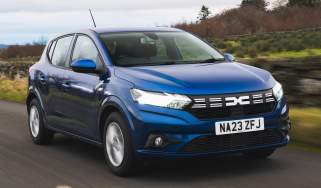
Dacia Sandero dethrones Tesla to become Europe’s best-selling car in 2024
Suzuki Swift review – an affordable mild-hybrid supermini
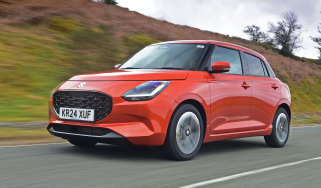
In-depth reviews
16 Jan 2025
Suzuki Swift review – an affordable mild-hybrid supermini
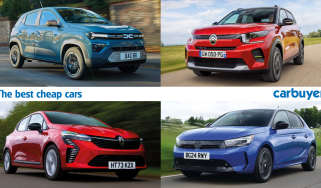
The best cheap cars in 2025
Citroen C5 Aircross review – a quirky family SUV
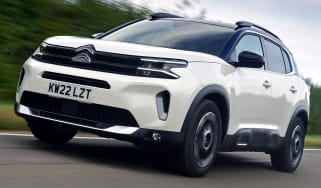
In-depth reviews
9 Jan 2025
Citroen C5 Aircross review – a quirky family SUV
Most Popular
These are the cars facing a £2,745 VED tax hike in 2025
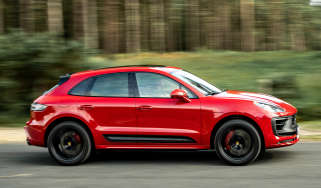
These are the cars facing a £2,745 VED tax hike in 2025
Best new car deals 2025: this week’s top car offers
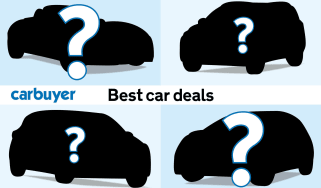
Best new car deals 2025: this week’s top car offers
Top 10 best cheap-to-run cars 2025

Top 10 best cheap-to-run cars 2025
More on Fabia

The best cheap cars in 2025
Everyone likes a bargain – here are the best cheap cars you can buy today
The best small cars and superminis in 2025
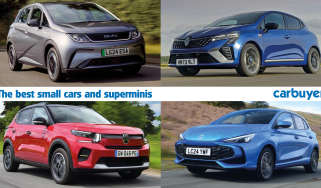
The best small cars and superminis in 2025
Need a new car that’s small but capable? These 10 superminis are worth a look
Updated Skoda Fabia, Scala, and Kamiq get small price bump, more kit
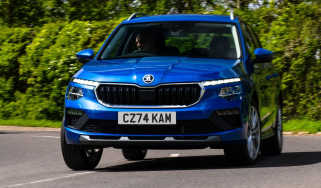
Updated Skoda Fabia, Scala, and Kamiq get small price bump, more kit
For a small increase in price, Skoda’s small car range now gets a lot more equipment
The 10 best hatchbacks to buy in 2025
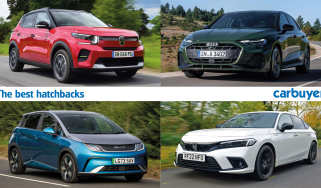
The 10 best hatchbacks to buy in 2025
Hatchbacks are the ideal car for many drivers, with plentiful interior and boot space packaged in a small footprint – these are the best
Top 10 best cars for students 2024
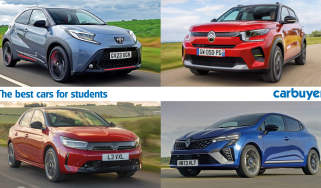
Top 10 best cars for students 2024
Affordability, safety and practicality are top priorities for students – these 10 cars are your best options
Top 10 best first cars for new drivers 2025
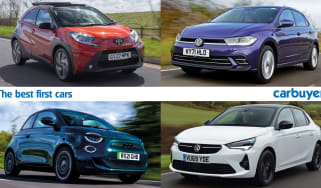
Top 10 best first cars for new drivers 2025
A good first car needs to be many things, including affordable, reliable and safe. Here’s our pick of the best
Top 10 cars with the biggest boots
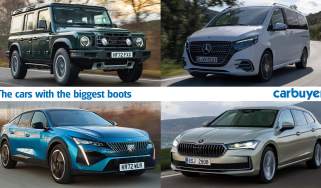
Top 10 cars with the biggest boots
If carting cargo is your priority, our top 10 list of the biggest car boots is sure to be of interest, whatever your budget
Top 10 best small company cars
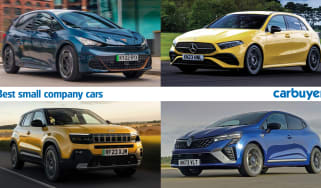
Top 10 best small company cars
Are you after a small company car with equally compact Benefit-in-Kind bills? These 10 cars should be on your shortlist
Tips & advice
Car dashboard warning lights: what does each symbol mean?

Tips and advice
21 Oct 2024
Car dashboard warning lights: what does each symbol mean?
Electric car charging stations: public networks, charger types, apps and maps

Tips and advice
23 Jul 2024
Electric car charging stations: public networks, charger types, apps and maps
PCP vs HP – which type of car finance is right for you?

Tips and advice
17 May 2022
PCP vs HP – which type of car finance is right for you?
Average speed cameras: how do they work?

Tips and advice
21 Mar 2024
Average speed cameras: how do they work?
Best cars

Top 10 best car interiors
Top 10 best electric cars 2025
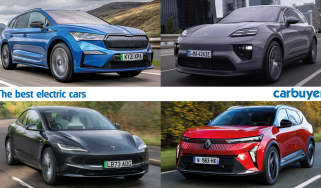
Top 10 best electric cars 2025
Top 10 best cheap-to-run cars 2025

Top 10 best cheap-to-run cars 2025
The UK's top 10 fastest hot hatchbacks 2024
